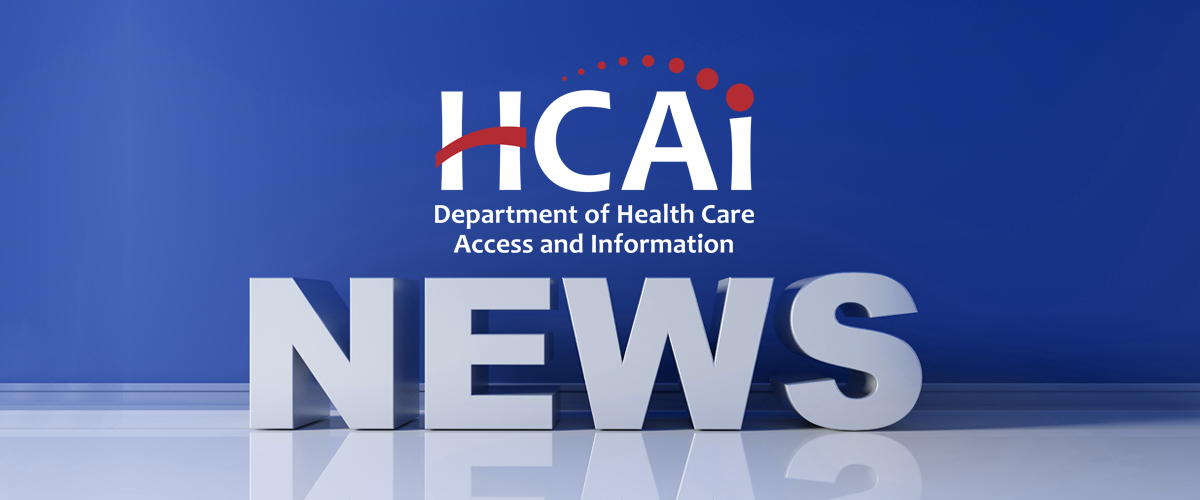The Office of Statewide Health Planning and Development (OSHPD) announces a new chapter in our history.
With Governor Gavin Newsom signing the 2021-2022 Budget and trailer bills, OSHPD becomes the Department of Health Care Access and Information (HCAI). The Governor’s budget recognized that OSHPD’s growing portfolio made it time for the office to become a department.
OSHPD has begun the year-long process of transitioning from OSHPD to HCAI.
Other changes impacting OSHPD/HCAI in enacted budget legislation under Assembly Bill 133 include:
- A new California Health Workforce Education and Training Council to provide guidance on statewide health workforce education and training needs related to primary care, nursing, and oral, behavioral, and allied health.
- A new California Health Workforce Research Data Center that will serve as the state’s central hub of health workforce data with new statutory authority to collect additional workforce data.
- A restructured healthcare workforce program portfolio that folds the Health Professions Education Foundation’s programs into a single portfolio without the Foundation’s 501c3 structure.
- Integration of the State Office of Rural Health and the J-1 Visa Waiver Program from the Department of Health Care Services into our Primary Care Office to provide a centralized approach to working with rural communities on health care infrastructure and workforce needs.
- Some changes to our data programs, including greater flexibility with the outcomes reporting on surgical cardiac procedures and improved access to birth and death data.
- $50 million augmentation for the Song-Brown program to fund new primary care residency programs.
- $10 million augmentation for the Song-Brown program to fund pre-licensure RN programs.
- $8 million to fund workforce programs that fund geriatricians or providers serving older adults in underserved areas.
- $16 million to provide grants to universities and colleges to operate Health Professions Career Opportunity Programs.
- $10.5 million to fund a California Medicine Scholars Program which would prepare community college students for careers as primary care physicians in underserved communities.
- $45.5 million to support workforce efforts for certified nursing assistance training programs, scholarships, stipends, and other activities to increase the certified nursing assistant workforce.
The recently signed budget legislation also includes the Children and Youth Behavioral Health Initiative for improving services for California’s youngest residents. Under this initiative, HCAI will invest in and build out a behavioral health workforce to provide culturally and linguistically proficient age-appropriate services.
Other changes included the integration of the State Office of Rural Health and the J-1 Visa Waiver Program on July 1.
Still under consideration during this legislative session is the Office of Healthcare Affordability, which was proposed in the Governor’s budget.
HCAI will have more to share in the weeks and months to come on the implementation timeline of the changes.


